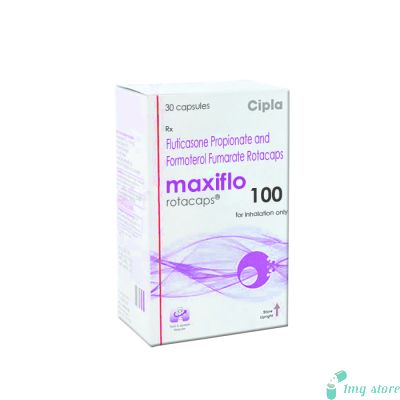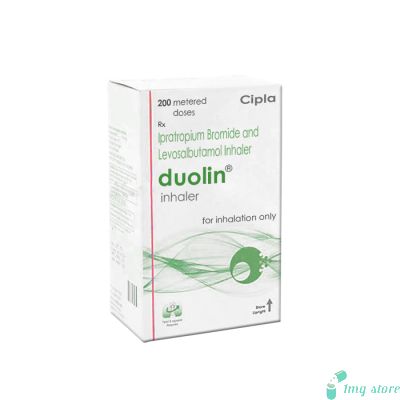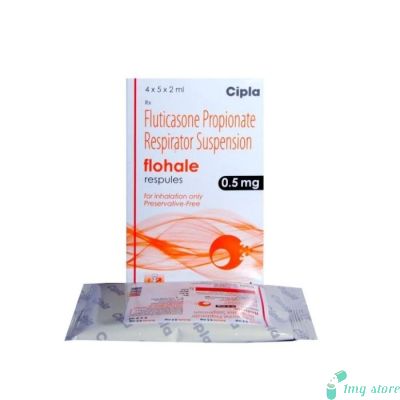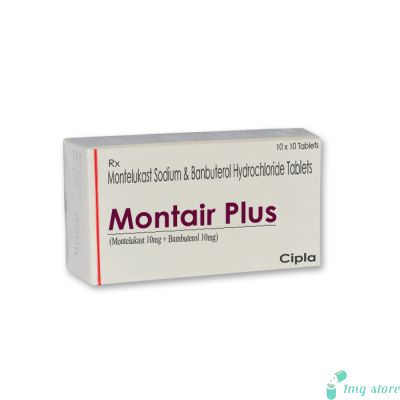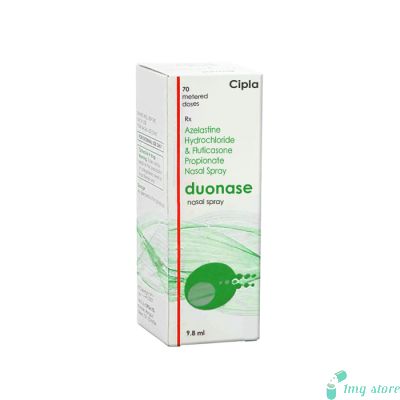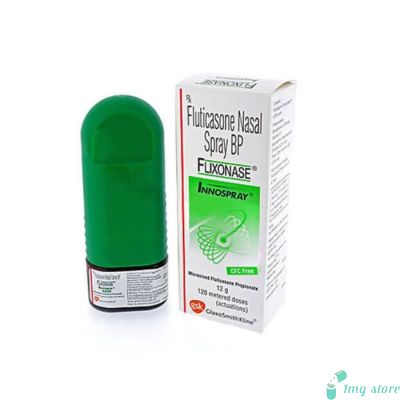Maxiflo Inhaler (Fluticasone + Formoterol)
Maxiflo Inhaler is a medication that combines two active ingredients, Fluticasone and Formoterol, to effectively manage respiratory conditions such as asthma and chronic obstructive pulmonary disease (COPD).
Fluticasone + Formoterol Inhaler (Maxiflo) in Respiratory Health
Respiratory conditions such as Asthma, chronic bronchitis, and chronic obstructive pulmonary disease (COPD) affect millions of individuals worldwide, significantly impacting their quality of life. Inhalers have emerged as a cornerstone in the management of these conditions, offering targeted relief from symptoms and improved respiratory function. Among the arsenal of inhalers available, the Fluticasone + Formoterol Inhaler, commonly known as Maxiflo, has gained prominence for its effectiveness in addressing airway inflammation and bronchoconstriction. This comprehensive guide aims to provide in-depth insights into Maxiflo, covering essential aspects such as dosage information, precautions, drug interactions, uses, side effects, and more, empowering individuals to better manage their respiratory health.
Maxiflo Inhaler Dosage Information
Recommended Dosage for Maxiflo
The recommended dosage of Maxiflo varies based on the severity of the respiratory condition and the individual's age. For adults and children over the age of 12, the typical starting dose is one inhalation (containing 100 mcg of Fluticasone and 6 mcg of Formoterol) twice a day. In cases where symptom control is inadequate, the dosage may be adjusted under the guidance of a healthcare provider. Children between the ages of 5 and 12 may be prescribed a lower dosage, typically one inhalation (containing 50 mcg of Fluticasone and 6 mcg of Formoterol) twice daily.
Missed Dose
If a dose of Maxiflo is missed, it should be taken as soon as remembered. However, if it is close to the time for the next scheduled dose, the missed dose should be skipped to avoid doubling up. Doubling the dose can increase the risk of side effects. It's essential to maintain a consistent dosing schedule to ensure the medication's effectiveness in managing respiratory symptoms.
Overdose
In the event of an accidental overdose of Maxiflo, which may manifest as symptoms such as increased heart rate, tremors, headache, or nausea, seek immediate medical attention. Overdose can potentially lead to severe side effects, and professional medical evaluation is crucial to manage the situation effectively.
Best Inhaler for Asthma
When it comes to managing asthma, finding the best inhaler is crucial for effective symptom control. Asthma is a chronic respiratory condition characterized by inflammation of the airways, leading to symptoms like shortness of breath, wheezing, and coughing. Inhalers are the cornerstone of asthma treatment, and among the various types available, Fluticasone + Formoterol Inhaler (Maxiflo) has gained recognition as one of the best options.
Points to Consider:
Combination Inhaler: Maxiflo combines two active ingredients, Fluticasone and Formoterol, making it suitable for both daily maintenance therapy and as a quick-relief inhaler during asthma exacerbations.
Anti-Inflammatory Action: Fluticasone, a corticosteroid, helps reduce airway inflammation, while Formoterol acts as a long-acting bronchodilator, providing rapid relief from bronchoconstriction.
Improved Symptom Control: The combination of these medications ensures better control of asthma symptoms, reducing the need for multiple inhalers.
Convenience: Maxiflo's dual-action formulation simplifies the asthma management regimen, leading to increased adherence.
Reduced Risk of Exacerbations: By addressing both inflammation and bronchoconstriction, Maxiflo helps prevent asthma exacerbations and hospitalizations.
Inhaler for Bronchitis: Bronchitis is another respiratory condition that can benefit from the use of inhalers, particularly if it is characterized by significant bronchoconstriction or wheezing. Bronchitis is often categorized as acute or chronic, with symptoms such as coughing, mucus production, and chest discomfort. While inhalers are not typically used as a primary treatment for acute bronchitis (usually caused by viral infections), they can be helpful in managing chronic bronchitis.
Buying Inhalers Online:
1mgstore.com is a reputable online platform where you can purchase various medications, including inhalers. Buying inhalers online offers convenience and accessibility for individuals with respiratory conditions. However, it's essential to ensure that you follow the prescribed dosage and consult with a healthcare professional before purchasing or using any medication online.
Prescription Requirement: Many inhalers, including Fluticasone + Formoterol Inhaler (Maxiflo), require a valid prescription from a healthcare provider.
Authenticity and Safety: 1mgstore.com is known for its commitment to selling authentic and safe medications.
Convenience: Online purchasing allows you to order inhalers from the comfort of your home and have them delivered to your doorstep.
Consultation: While online platforms provide access to medications, it's crucial to consult with a healthcare provider to ensure the right inhaler choice and dosage.
Patient Education: Understanding the proper use and potential side effects of inhalers is essential for effective respiratory management.
Several alternatives to the Fluticasone + Formoterol Inhaler (Maxiflo) are available, catering to various respiratory conditions. These alternatives include other combination inhalers and standalone medications. One such option is the Budesonide + Formoterol Inhaler, which combines a corticosteroid (Budesonide) and a long-acting bronchodilator (Formoterol), similar to Maxiflo. Another alternative is the Fluticasone + Salmeterol Inhaler, which pairs Fluticasone with another bronchodilator, Salmeterol. These alternatives are also available for purchase through 1mgstore.com, a trusted online platform for a wide range of respiratory medications. Remember to consult with a healthcare provider to determine the most suitable inhaler for your specific respiratory condition and needs.
Who Should Not Use Maxiflo Inhaler (Fluticasone + formoterol)
Maxiflo is not suitable for everyone. Individuals with a history of hypersensitivity to Fluticasone, Formoterol, or any other components of the inhaler should avoid its use. Additionally, individuals with untreated or uncontrolled tuberculosis, fungal, bacterial, or viral infections should not use Maxiflo. It is vital to inform your healthcare provider about your complete medical history and any existing health conditions before starting Maxiflo.
Pregnancy and Breastfeeding Considerations: Pregnant or breastfeeding individuals should consult their healthcare providers before using Maxiflo. While there is limited evidence of its safety during pregnancy, the potential benefits should be carefully weighed against the risks, and alternative treatments may be considered. If Maxiflo is deemed necessary during breastfeeding, close monitoring of the infant for potential adverse effects is advised.
Precautions for Individuals with Specific Medical Conditions: Maxiflo should be used with caution in individuals with certain medical conditions, including diabetes, heart disease, high blood pressure, and glaucoma. It may exacerbate these conditions or require dose adjustments. Regular check-ups and monitoring by a healthcare provider are essential to ensure safe and effective usage.
Key Functions Must Be Noticed of Maxiflo Inhaler (Fluticasone + formoterol)
- Treatment of Asthma: Maxiflo plays a crucial role in the management of asthma, a chronic respiratory condition characterized by airway inflammation and bronchoconstriction. The combination of Fluticasone, a corticosteroid that reduces airway inflammation, and Formoterol, a long-acting bronchodilator that provides rapid relief from bronchoconstriction, makes Maxiflo particularly effective. Its regular use helps prevent asthma exacerbations, control symptoms, and improve overall lung function in individuals with asthma.
- Management of Chronic Bronchitis: Chronic bronchitis is a common respiratory condition marked by persistent cough, mucus production, and impaired lung function. Maxiflo is a valuable treatment option for individuals with chronic bronchitis, as it addresses both airway inflammation and bronchoconstriction, providing symptomatic relief and reducing the frequency of exacerbations.
- Other Respiratory Conditions Where Maxiflo Is Prescribed: In addition to asthma and chronic bronchitis, Maxiflo may be prescribed for other respiratory conditions, such as chronic obstructive pulmonary disease (COPD) and exercise-induced bronchoconstriction. Its dual-action formulation makes it a versatile choice for managing various respiratory conditions that involve airway inflammation and bronchoconstriction.
A number of the follow-on effects of Maxiflo Inhaler (Fluticasone + formoterol)
Common Side Effects
Maxiflo, like any medication, may cause side effects. Common side effects include throat irritation, coughing, hoarseness, and headaches. These side effects are generally mild and often resolve with continued use. Rinsing the mouth with water after each inhalation can help minimize throat irritation.
Serious Side Effects and When to Seek Medical Attention
While rare, Maxiflo may cause serious side effects, including allergic reactions, increased heart rate, chest pain, and high blood pressure. If you experience any of these severe side effects or notice a sudden worsening of symptoms, seek immediate medical attention.
Long-Term Use Considerations
Long-term use of Maxiflo should be under the supervision of a healthcare provider. Prolonged corticosteroid use may increase the risk of systemic side effects, such as osteoporosis or adrenal suppression. Regular check-ups and monitoring are essential to ensure the medication's continued effectiveness while minimizing potential risks.
Answers to Common Inquiries About Fluticasone + Formoterol Inhaler (Maxiflo)
Q1. Can I use Maxiflo for allergies?
No, Maxiflo is primarily prescribed for respiratory conditions like asthma and chronic bronchitis. It contains Fluticasone and Formoterol to address airway inflammation and bronchoconstriction. If you have allergies, consult your healthcare provider for an appropriate treatment plan.
Q2. Is Maxiflo safe during pregnancy?
Discuss any potential use of Maxiflo with your healthcare provider if you are pregnant or planning to become pregnant. They can assess the risks and benefits to determine if it's safe for your specific situation.
Q3. Can I buy Maxiflo without a prescription?
No, Maxiflo is a prescription medication. You should consult a healthcare provider to evaluate your respiratory condition and receive a proper prescription before purchasing it.
Q4. Are there any dietary restrictions while using Maxiflo?
There are no specific dietary restrictions associated with Maxiflo use. However, maintaining a healthy diet can contribute to overall respiratory health.
Q5. Can Maxiflo be used by children?
Maxiflo can be prescribed to children, but the dosage and usage instructions should be determined by a pediatrician. It is essential to follow their guidance for safe and effective use.
Q6. What should I do if I experience throat irritation when using Maxiflo?
Throat irritation is a common side effect of inhaled medications. Gargling with water after inhalation and using a spacer device can help minimize irritation. If it persists, consult your healthcare provider for potential alternatives.
Q7. Can Maxiflo be used as a rescue inhaler?
Maxiflo is not intended for immediate relief during acute asthma attacks. It is primarily a maintenance inhaler. You should always have a separate rescue inhaler (e.g., albuterol) for sudden symptoms of bronchoconstriction or shortness of breath.
Medications That May Interact with Maxiflo Inhaler (Fluticasone + formoterol)
Before starting Maxiflo, inform your healthcare provider about all medications you are currently taking, including prescription drugs, over-the-counter medications, and herbal supplements. Certain medications, such as beta-blockers, monoamine oxidase inhibitors (MAOIs), and tricyclic antidepressants, may interact with Formoterol, potentially leading to adverse effects. Additionally, other inhaled medications or corticosteroids may interact with Fluticasone, necessitating careful monitoring and dosage adjustments.
How to Manage Drug Interactions
Managing drug interactions with Maxiflo often involves adjusting the dosages of interacting medications or exploring alternative treatments. Your healthcare provider will carefully assess the risks and benefits of concurrent medication use and develop a tailored treatment plan to minimize potential interactions while effectively managing your respiratory condition.
| Manufacturer | : | Cipla Pharma, India |
| Equivalent Brand | : | Flutiform Inhaler |
| Generic Search | : | Fluticasone + Formoterol |









